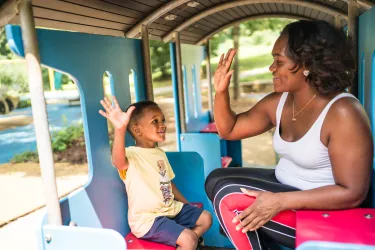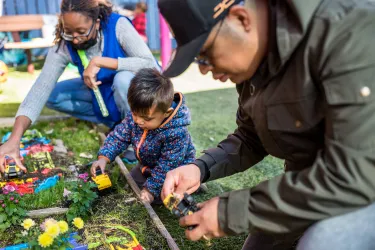Participate in Research to Find Solutions
Maternity Care Coalition’s (MCC) Research and Evaluation team collaborates in community-engaged studies of innovative programs dedicated to improving the health and well-being of pregnant people, parents, and children.
We evaluate the effectiveness of MCC’s home visiting programs and contribute to state and national home visiting outcomes. We seek to provide evidence that helps to improve systems of maternal and child health, and early childhood care and education. We partner with our Advocates and people with lived experience to frame the data we collect in a way that is reflective and respectful of the communities we serve.
Areas of Focus




Are you interested in learning more about our research and evaluation efforts or partnering with us? Or do you want to offer your skills to a more time-intensive volunteer commitment? Apply to become a member of our Research and Evaluation Committee with the link below.

Notable Research
We contribute thought leadership to many types of community-engaged research partnerships, serving on community advisory boards, research study teams, and as advisors to university graduate programs. Learn nore about our notable research by clicking the link.
